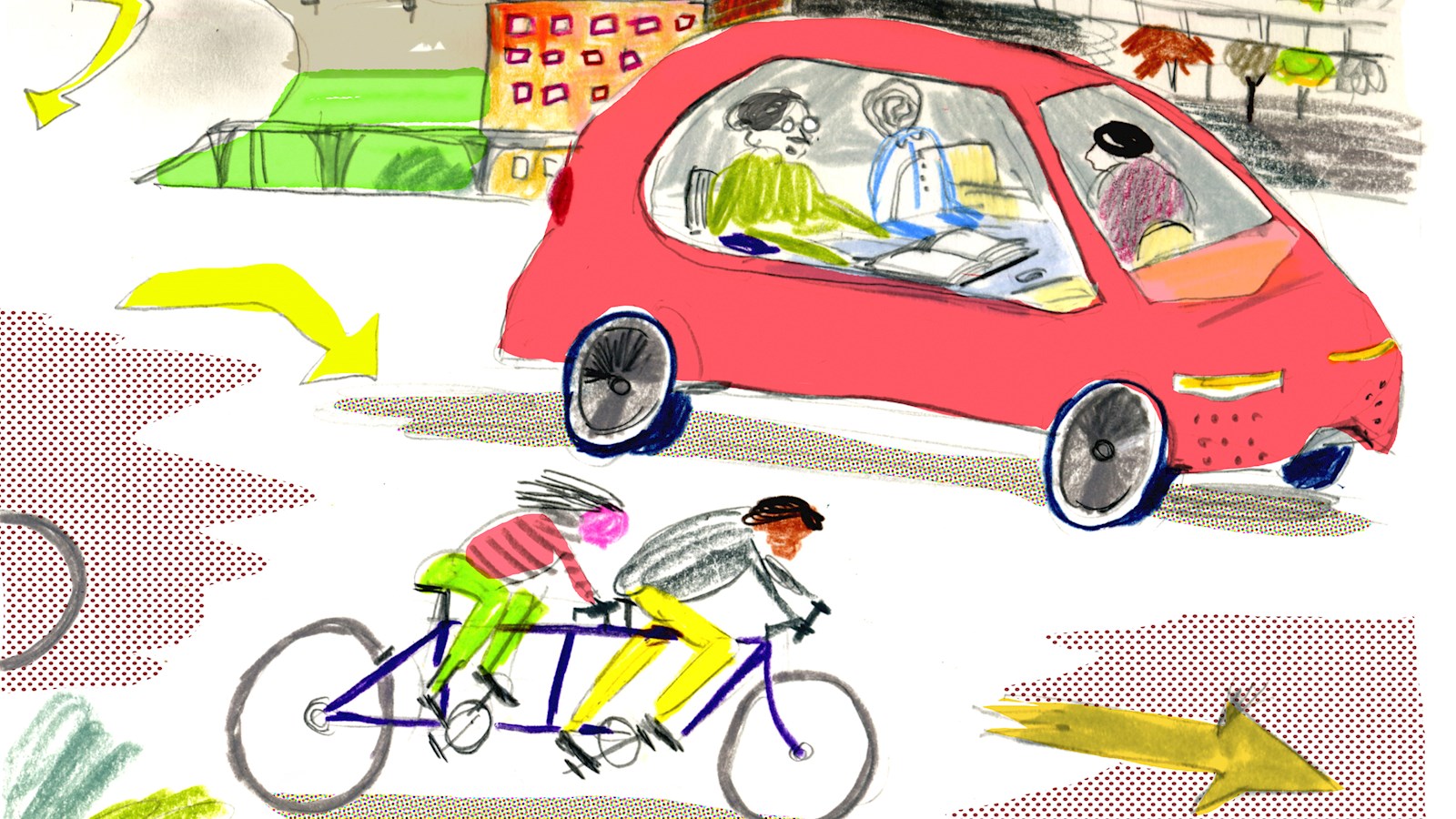
Unseen: mobility is more than cars
UNSEEN, from Linna Zhao, Wavemaker China, and Tongji University, is a documentary series that investigates trends in value and ecosystem transformation – with the first episode focusing on The Third Space, or vehicles
Wavemaker China and Tongji University's College of Design and Innovation FABO have jointly announced the first episode of a new documentary series named UNSEEN, which focuses on The Third Space. It is available to watch on YouTube for international audiences and Youku for China.
The 45-minute documentary is the first of its kind in China to dive into the topic of The Third Space, and includes insights from university professors, students, automobile industry experts, and media veterans. The Third Space explains that if home is The First Space, and where we work is The Second Space, then how we travel on the road could become The Third Space – or ‘mobile space’.
"You need to step out of the day-to-day, you need to create the space to challenge Strategy Innovation conventions and to challenge obvious thinking, thinking about the challenge three days ahead, three years ahead," says Jose Campon, CEO of Wavemaker China.
Shared mobility is not a new concept, but as car companies embrace internet-driven strategies and pivot towards becoming future mobility service providers, it is time to rethink the definition of automobiles of the future, says the documentary.
"Mobility goes beyond merely travelling. What have changed are space, time, mental status and our life. The design of space in mobility in the future will become a kind of artistic practice, that will represent how our culture and behaviour evolve," says Linna Zhao, producer of the documentary and Head of Thought Leadership at Wavemaker China.
Future mobility: a revolution
The first episode of the UNSEEN documentary series explores how Chinese social and cultural conventions will help to shape the future of mobility. Intelligent and new energy vehicles (NEV) are coming, but, with NEVs not yet delivering true value to customers, there is still a gap to be bridged between automakers' products and consumer demands. Further insight is desperately needed.
The documentary explains how the future of cars is a much bigger topic than just the future of mobility. Through developing better ways of being mobile on the roads, we must look at how we can serve marginalised groups, such as the elderly and people with visual impairments, so that they too can potentially become consumers. For groups like Gen Z, cars can become more playful, imaginative and representative of individual personalities. These ideas will help nurture and popularise the new concept of The Third Space.
Although clean energy, technology and intelligence are all features of NEVs, consumers today are still mostly concerned about the basic factor of safety. According to a Euromonitor survey, 39% of the respondents to its Mobility Survey were concerned about the safety of riding in an autonomous/self-driving car in 2022. The documentary argues that it is time to change people's minds and to redefine the role of transportation and vehicles.
In The Third Space, smart vehicles will be able to cope with psychological demands – not just the traditional requirements of a transportation system.
"Transportation contains more than a functional meaning that carries people from one place to another. It needs to be considered via the dimensions of cultural evolution such as time and space," says Jeff Ding, Associate Professor in Practice of Tongji University, College of Design and Innovation.
Zhao adds: "This is not far in the future. Human beings will no longer need to waste their energy on the road. When our hands no longer need to touch the steering wheel and our eyes no longer need to look ahead, what will be liberated? Is it our thoughts?”
This transformation in mobility is taking place quietly. The Third Space will change the way in which we define space itself.
published on
06 December 2022
More in Experience

Let’s add audio for visually impaired audiences
How to make advertising more accessible for visually impaired audiences

The Future 100: wellbeing, humanity, emotion and tech
This annual trend spotter – by WPP’s VML – gives us the context for the new normal for marketing in 2024.

Activating sports events – the ultimate balancing act
WPP Sports Practice takes a look at the art of timing for sports event activation

